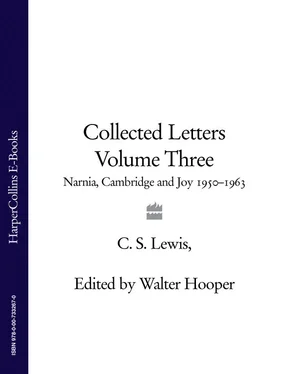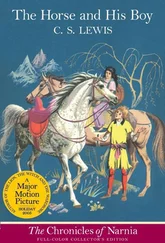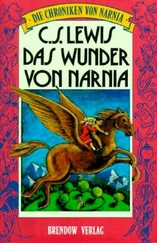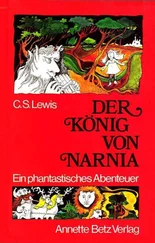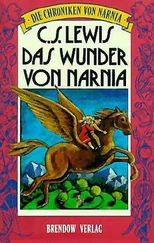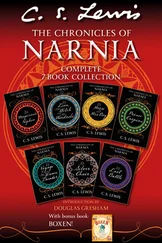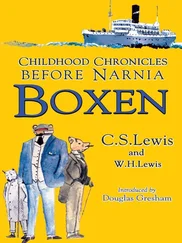Porcus sum , I am a pig, porcissimus , the piggest of pigs. I looked at my diary at about 3 o’clock on Sat. afternoon and found to my horror that I had failed a tryst with you at 12. Please forgive a nit-wit. Will you prove your charity by meeting me at the Eastgate 12 o’clock next Saturday? Even I seldom make exactly the same howler twice! I really am very sorry: I had been much looking forward to it.
C.S.L.
TO MICHAEL IRWIN (P): 55
Magdalen College,
Oxford
25th March 1952
Dear Michael
Thank you very much for your nice letter. I am very glad you liked the Narnian books. Yes–there is another one already written but you won’t be able to get it till next November: they are printing it at present, and printing takes a long time, especially for a book that has pictures in it.
Lucy and Edmund and Caspian and Reepicheep (but not Peter and Susan, who are now getting a bit too old) all come into the new one. They get into the Narnian world and all go to sea and have a long voyage: it is called The Voyage of the Dawn Treader .
I wonder what other books you like. Do you like E. Nesbitt’s The Phoenix and the Carpet , and The Amulet, 56 and Tolkien’s The Hobbit, 57 and MacDonald’s The Princess and the Goblins and Curdy and the Princess?. 58 I think all these are very good. Please thank your father for writing to me. Love to all.
Yours
C. S. Lewis
TO ROGER IANCELYN GREEN (BOD):
Magdalen College
Oxford
29/3/52
Hearken, Little Brother, to the wisdom of Baloo. 59 Neither you nor I will write to the Bulkeley Arms 60 for rooms for us both, for the modern hotel keeper wd. then be v. likely to put us both in one room without warning or remedy.
But you will write for your room & I will write (today) for mine. And then, by the permission of Allah, he will think he has to do with a Mr. Green of Bebington & a Mr. Lewis of Oxford who have no connection.
High Wind in Jamaica 61 wh. I’ve just read is better than I expected. Tho’ none of them speak about the brother’s death we are told that the eldest girl ‘missed him badly’: her silence was not due to indifference but to a kind of taboo wh. I think quite possible. As to her evidence wh. hanged the pirates, I suppose some children, as some adults, wd. do that and others not. She was in a tight place: and as a certain type of woman wd. play her sex, a certain type of child wd. play its childishness. A grim book but good in its way.
Love to all.
J.
TO HELEN D. CALKINS (W):
Magdalen College,
Oxford
March 29th 1952
Dear Miss Calkins
I’ve read India Looks with as much interest as if it were an adventure story: especially the parts about ancient Indian history which were absolutely new. That’s one of the reasons why I won’t do a preface: I am not qualified to sponsor a book on this subject. For all I know it might be (tho’ I’m sure it is not) a mass of errors! The other is that you are kind to me and quote me, and after that a preface from me wd. make us both look silly—a mutual admiration society.
It’s v. well done. Here are a few notes wh. you may or may not find worth considering.
P. 3. para 4. Trojan heroes etc. Does it matter that of those you mention only Hector was on the Trojan side? Or that many people think the Trojans were not Aryans! Wd. Homeric for Trojan be safer?
P 4. Leaf’s poem, dazzle and the stress . Are you sure it isn’t dazzle and stress* .
P. 23 Quotation from me. I’m afraid people may think (despite the quotation marks) that the view expressed is mine! Could you without too much labour find another motto for this chapter?
‘I am the doubter and the doubt’–is it from Emerson or Henley?–might do by itself. 62
P. 36 Para 1. Its connotation…receptivity . This clause conveys no meaning whatever to my mind! This migh the because all the words had different shades of meaning in America. But a knot of abstract nouns, all rather hard to define, is usually a danger signal. (Beware of aspect, framework, connotation , and all their family!)
P 41. Quotation from Hooker. For intensive read intentive .
P 41. last line but one. of separated . Something must have dropped here.
P 42. Para 3. Surely the correct construction is ‘enamoured of ‘not ‘enamoured with’?
And above, Para 3, for Origin read Origen .
P. 45 First sentence. Again, conveys no clear meaning to me. Simplify! Simplify!
P 49 Footnote. You quote as if it was mine what I (as I told you) was quoting from Whitehead. 63 Return it to him. I haven’t got a copy to hand but it’ll do you no harm to read his Chapter II! (By the way in a serious book like yours all other books shd. be mentioned with place and date of the edition you are using. Otherwise it will look amateurish to publishers’ readers.
P. 51 Para 1. Christ-centric . Surely the usual word is Christocentric? . (I’m not quite clear at what date the processes described are meant to be happening.)
P 52. Para 1. The reason for his reluctance was because . You’re saying it twice over! Either The reason…was that or Dr. H. was reluctant because he (The second is better. Always prefer concrete to abstract nouns when you can get them: it avoids Gobbledegook.)
P 53. Was there really no effort to do all these works till modern times? Jesuits in Paraguay? Evangelicals attacking slavery?
P 59. Para 2. The assumption etc. Ambiguous. Does it mean ‘We can’t bear it when others assume that we are naif ‘or ‘when others assume that they are naif ‘?
P. 67. It is not…estimate of God . Good. Very good. That’s how to write.
Very good wishes; and thanks for an interesting bit of reading.
Yours sincerely
C. S. Lewis
TO MARY NEYLAN (T): 64
Magdalen College
Oxford
1/4/52
Dear Mrs. Neylan–
Yes, I do miss him. 65 But what strikes me even more is the sense that he is already helping me more from where he is than he would do on earth. It was v. nice to meet you all and especially Sarah, now at last old enough to talk to! I liked her and cd. have done with less of Mingo! She wants fattening, though! Bless you all.
Yours
Jack Lewis
TO MARY VAN DEUSEN (W):
Magdalen etc
April 1st 1952
Dear Mrs. Van Deusen
The advantage of a fixed form of service is that we know what is coming. Ex tempore public prayer has this difficulty: we don’t know whether we can mentally join in it until we’ve heard it—it might be phoney or heretical. We are therefore called upon to carry on a critical and a devotional activity at the same moment: two things hardly compatible. In a fixed form we ought to have ‘gone through the motions’ before in our private prayers: the rigid form really sets our devotions free .
I also find the more rigid it is, the easier it is to keep one’s thoughts from straying. Also it prevents any service getting too completely eaten up by whatever happens to be the pre-occupation of the moment (a war, an election, or what not). The permanent shape of Christianity shows through. I don’t see how the ex tempore method can help becoming provincial & I think it has a great tendency to direct attention to the minister rather than to God.
Quakers…well I’ve been unlucky in mine. The ones I know are atrocious bigots whose religion seems to consist almost entirely in attacking other people’s religions. But I’m sure there are good ones as well.
Читать дальше
